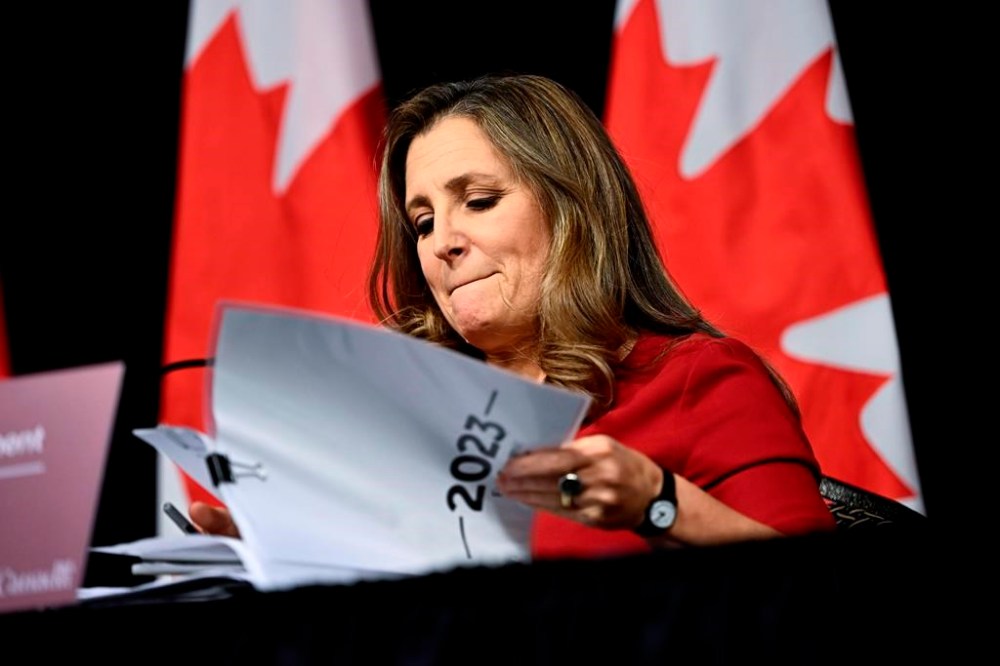Liberals lack direction on many issues
Advertisement
Read this article for free:
or
Already have an account? Log in here »
We need your support!
Local journalism needs your support!
As we navigate through unprecedented times, our journalists are working harder than ever to bring you the latest local updates to keep you safe and informed.
Now, more than ever, we need your support.
Starting at $15.99 plus taxes every four weeks you can access your Brandon Sun online and full access to all content as it appears on our website.
Subscribe Nowor call circulation directly at (204) 727-0527.
Your pledge helps to ensure we provide the news that matters most to your community!
To continue reading, please subscribe:
Add Brandon Sun access to your Free Press subscription for only an additional
$1 for the first 4 weeks*
*Your next subscription payment will increase by $1.00 and you will be charged $20.00 plus GST for four weeks. After four weeks, your payment will increase to $24.00 plus GST every four weeks.
Read unlimited articles for free today:
or
Already have an account? Log in here »
Hey there, time traveller!
This article was published 24/11/2023 (718 days ago), so information in it may no longer be current.
Included in federal Finance Minister Chrystia Freeland’s gloomy fall economic statement for the country earlier this week was something called the Canadian Mortgage Charter.
As the CBC explained in its coverage of the issue, the charter is not a law, the government has no intention of making it a law and the Department of Finance characterized it as a list of “rules and expectations” for banks dealing with potential borrowers and existing borrowers looking for financial relief.
“The Finance official told CBC News that borrowers who are not offered the affordability measures outlined in the mortgage charter can file a complaint on the (Financial Consumer Agency of Canada) website,” the story stated, though it also noted that the charter said nothing about how these rules will actually be implemented.

In other words: it’s a toothless set of rules paying lip service to the idea of making it easier for people to buy homes without actually doing much to accomplish that goal.
Sure, Canadians can make complaints, but just look at how well the system the Liberals set up to deal with airline complaints is working.
As of September, the backlog of complaints set a new high of 57,000 and last month, CBC reported that Air Canada was offering complainants far less than they should be owed under passenger protection rules to quietly settle disputes mired in delays.
Housing is in crisis, there’s no doubt about that. High interest rates are a key component preventing people from borrowing the funds needed to purchase a home.
But by creating a weak set of expectations that are not enshrined in law, this apparent effort by the Liberals to make home ownership more attainable for Canadians is simply doomed to failure.
Improving supply appears to be a more efficient route to that goal. Parts of the Liberal government clearly recognize that, given Housing Minister Sean Fraser cutting deals in recent months with municipalities to change rules to promote the construction of multi-unit housing.
If this charter is more aimed at people having difficulty affording what they already have, it appears too limited and narrow to do much good.
For a government approaching its ninth year in power, the economic statement seems to be a solid encapsulation of one of its main weaknesses.
The governing Liberals seem unable — or merely unwilling — to look for holistic, wide-reaching solutions to problems facing Canadians.
For every solid initiative they put forward like promoting housing supply or making child care more affordable, we are seeing too many ineffectual programs like this new charter being implemented.
Programming like universal dental care, demanded by the NDP as a condition of propping up the minority Liberal government, could benefit a lot of people, but the narrow scope limits its potential effectiveness.
Then there’s the electric vehicle manufacturing plant in Windsor, Ont., that the federal government has subsidized to the tune of $15 billion, justified partially under the guise of creating jobs for Canadians, which was revealed this week to be looking into bringing more than 1,500 temporary foreign workers to staff.
It doesn’t help that this government is actively undermining its own decision-making in cases like the carbon tax, where the argument made about it dissuading people from polluting more heavily is sabotaged by exempting certain people from having to pay it to heat their homes, specifically in areas more likely to vote Liberal.
We’re unlikely to have Liberal MPs say out loud that their party is directionless and — judging by recent polling numbers — destined for a comprehensive electoral defeat in the next election.
But if elected and grassroots party members have any desire to be competitive at the ballot box, it might be time to signal a desire for a change in leadership, or at the very least, some consistent and effective direction.
